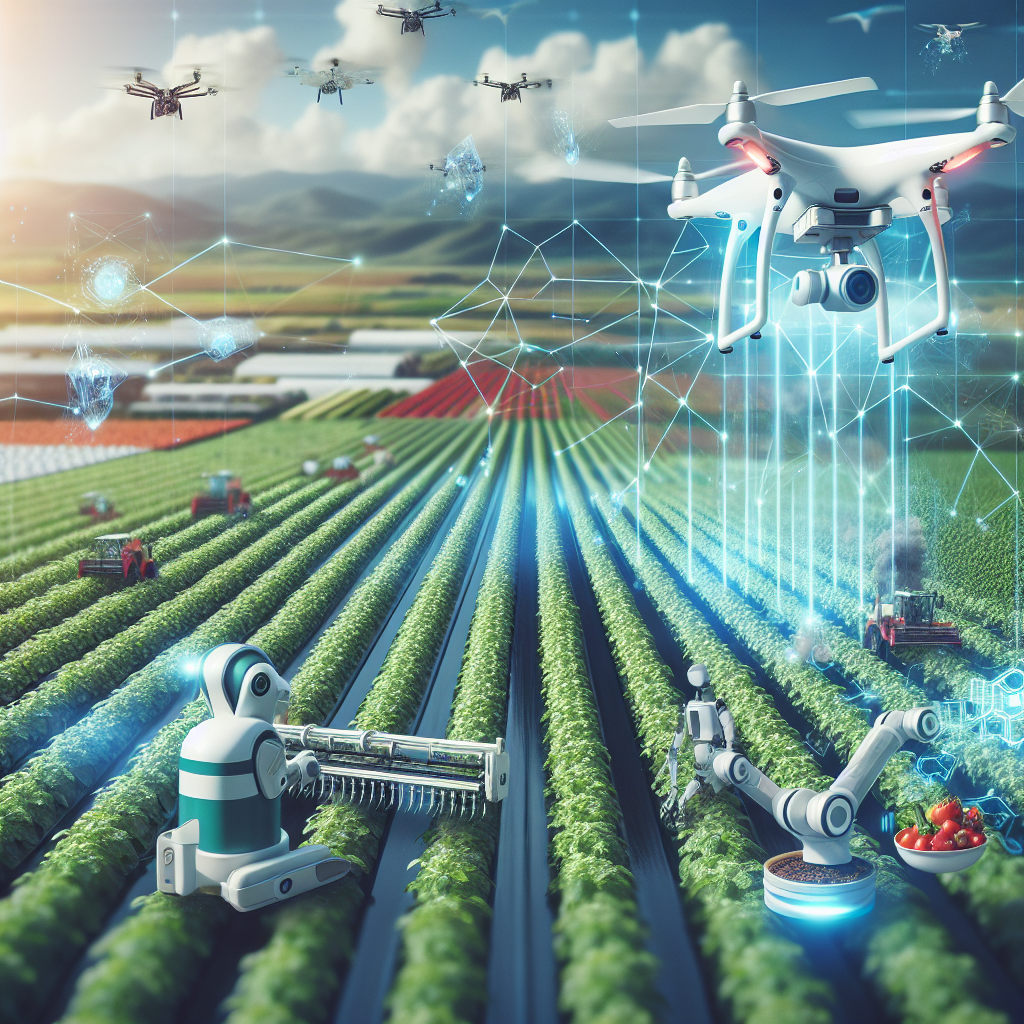Enhancing Food Safety with AI in Agriculture
Food safety is a critical issue that affects everyone. Ensuring that the food we eat is safe and free from harmful contaminants is essential for maintaining public health and well-being. With the growing global population and the increasing demand for food, it has become more important than ever to find innovative solutions to enhance food safety in agriculture.
One such solution is the use of artificial intelligence (AI) in agriculture. AI has the potential to revolutionize the way we produce, monitor, and ensure the safety of our food supply. By leveraging AI technology, farmers and food producers can improve the efficiency and effectiveness of their operations, leading to safer and more sustainable food production practices.
AI can be used in a variety of ways to enhance food safety in agriculture. One of the key applications of AI in agriculture is in the detection and monitoring of contaminants in food products. AI algorithms can analyze data from sensors, cameras, and other monitoring devices to identify potential contaminants in real-time. This allows farmers and food producers to quickly identify and address any issues that may arise, preventing contaminated products from reaching consumers.
Another important application of AI in agriculture is in the prediction and prevention of foodborne illnesses. By analyzing data on weather patterns, soil conditions, and other factors that can impact food safety, AI algorithms can help farmers and food producers anticipate potential risks and take proactive measures to prevent contamination. This can help reduce the incidence of foodborne illnesses and improve overall food safety standards.
AI can also be used to optimize the use of pesticides and other chemicals in agriculture. By analyzing data on crop health, pest infestations, and other factors, AI algorithms can help farmers determine the most effective and environmentally friendly ways to protect their crops from pests and diseases. This can help reduce the use of harmful chemicals in agriculture, leading to safer and more sustainable food production practices.
In addition to enhancing food safety, AI can also help improve the overall efficiency and productivity of agriculture. By automating tasks such as monitoring crop health, predicting yields, and managing resources, AI technology can help farmers optimize their operations and increase their profitability. This can lead to a more sustainable and resilient food supply chain, benefiting both farmers and consumers.
Overall, the use of AI in agriculture has the potential to revolutionize the way we produce, monitor, and ensure the safety of our food supply. By leveraging AI technology, farmers and food producers can improve the efficiency and effectiveness of their operations, leading to safer and more sustainable food production practices. As the world continues to grapple with the challenges of feeding a growing population, AI in agriculture offers a promising solution to enhance food safety and security for all.
FAQs:
Q: How does AI help enhance food safety in agriculture?
A: AI technology can be used to detect and monitor contaminants in food products, predict and prevent foodborne illnesses, optimize the use of pesticides and other chemicals, and improve overall efficiency and productivity in agriculture. By leveraging AI algorithms, farmers and food producers can enhance food safety standards and ensure the quality of their products.
Q: What are some examples of AI applications in agriculture?
A: Some examples of AI applications in agriculture include the use of sensors and monitoring devices to detect contaminants in food products, the analysis of weather patterns and soil conditions to predict and prevent foodborne illnesses, and the optimization of pesticide use to protect crops from pests and diseases. AI technology can also be used to automate tasks such as monitoring crop health, predicting yields, and managing resources, leading to more efficient and productive farming practices.
Q: How can AI help reduce the use of harmful chemicals in agriculture?
A: By analyzing data on crop health, pest infestations, and other factors, AI algorithms can help farmers determine the most effective and environmentally friendly ways to protect their crops from pests and diseases. This can help reduce the use of harmful chemicals in agriculture, leading to safer and more sustainable food production practices.
Q: What are the benefits of using AI in agriculture?
A: The use of AI in agriculture offers a variety of benefits, including enhanced food safety standards, improved efficiency and productivity, reduced use of harmful chemicals, and more sustainable farming practices. By leveraging AI technology, farmers and food producers can optimize their operations and ensure the quality and safety of their products for consumers.
In conclusion, the use of AI in agriculture has the potential to revolutionize the way we produce, monitor, and ensure the safety of our food supply. By leveraging AI technology, farmers and food producers can enhance food safety standards, improve efficiency and productivity, and reduce the use of harmful chemicals in agriculture. As the world continues to face the challenges of feeding a growing population, AI in agriculture offers a promising solution to enhance food safety and security for all.

